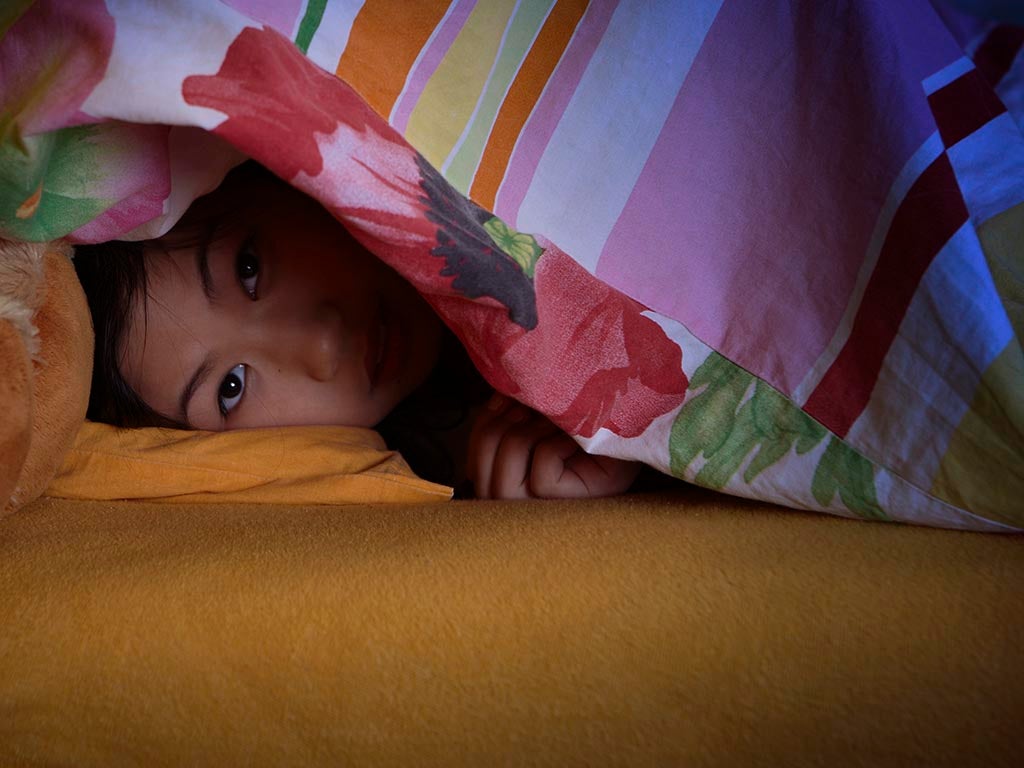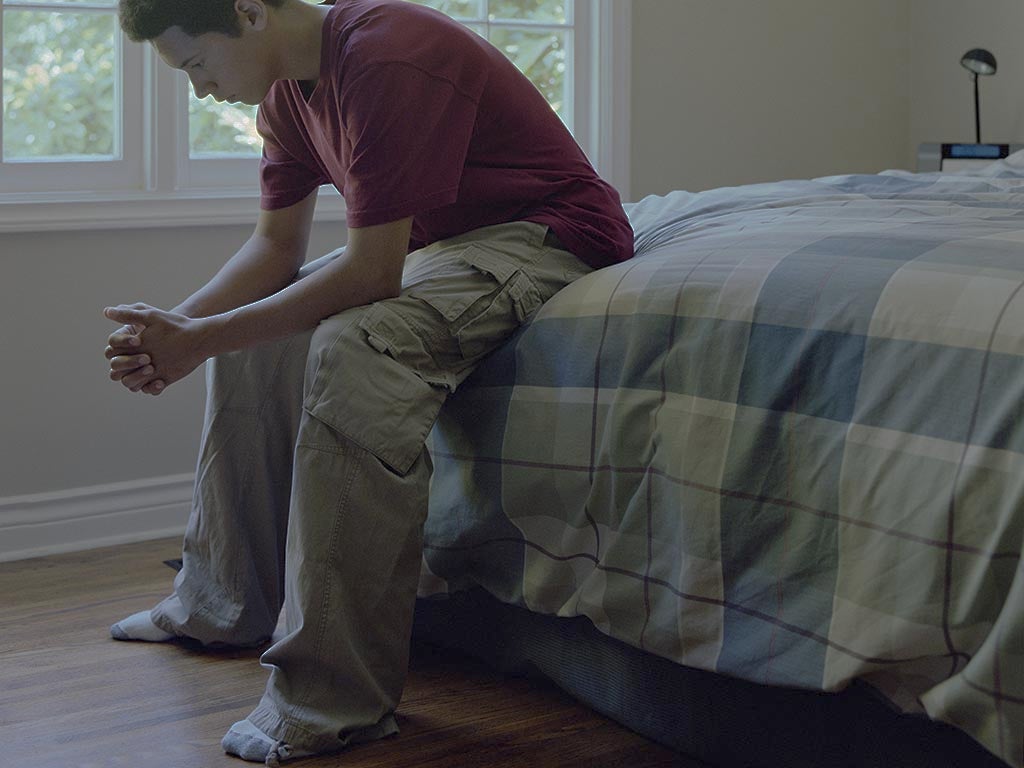Co-sleeping into the teens: when children don't want to sleep alone
For some children the desire to sleep in their parents’ bed can go into late childhood and early adolescence, so what can parents do?

Your support helps us to tell the story
From reproductive rights to climate change to Big Tech, The Independent is on the ground when the story is developing. Whether it's investigating the financials of Elon Musk's pro-Trump PAC or producing our latest documentary, 'The A Word', which shines a light on the American women fighting for reproductive rights, we know how important it is to parse out the facts from the messaging.
At such a critical moment in US history, we need reporters on the ground. Your donation allows us to keep sending journalists to speak to both sides of the story.
The Independent is trusted by Americans across the entire political spectrum. And unlike many other quality news outlets, we choose not to lock Americans out of our reporting and analysis with paywalls. We believe quality journalism should be available to everyone, paid for by those who can afford it.
Your support makes all the difference.Some children are all-night sleepers, but they're in the minority. It’s natural for babies and children to want to sleep with their parents, or very close to them, as it’s a primal thing to do. A look at young dependent mammals will attest this - they all sleep next to their parents/mother.
The Mother-Baby Behavioural Sleep Laboratory at the University of Notre Dame, a leading American research university, has carried out a number of studies into co-sleeping. Cosleeping.nd.edu has this to say about kids in the bed: “Co-dependence is not a nasty word; indeed, co-dependence and interdependence in general is indispensable to maximize healthy human development and is especially critical for human infants, born so neurologically immature at birth.
“Interestingly, but not really surprising, when a human infant’s inherent need for contact and proximity are met by parents early in their lives rather than becoming ‘dependent’ as is always suggested in the popular press the reverse is actually true: early dependence leads to early independence and self sufficiency and, perhaps even, enhanced self confidence. Some people confuse an infant’s willingness to sooth itself back to sleep as a sign of ‘independence’, but lifelong self sufficiency and/or confidence has absolutely nothing to do with the age at which an infant puts its self back to sleep without its parent or a loved one.”
Until they are around six, children's sleep cycles are shorter than those of adults – about 60 minutes rather than 90 to 100 minutes. So there are many more points in the night when they might wake as they move from one cycle to another. (They aren’t being naughty or just attention seeking.) They may want to get into bed with parents for comfort, but as pointed out above, early dependence can actually lead to early independence.
But for some children this desire to sleep in their parents’ bed can go into late childhood and early adolescence. A quick browse on the internet easily finds plenty of parents - and their children - sharing anguish about not being able to sleep alone.
Teenhood mirrors toddlerhood - a time of frustration, anger, lashing out and adjustments. Older children and teenagers do want to sleep on their own and recognise it can be a problem for their parents if they feel unable to, but for many the reason they can’t is because they are suffering from severe nighttime anxiety and can’t sleep on their own.

For some teenagers, it might indicate a sign of unhappiness. Maybe they’re being bullied at school and don’t feel able to tell you, but derive huge comfort from having you close at night when the terrors of facing the next day are at their most acute. Or perhaps their first love affair has ended and this has made them feel abandoned. To make up for it they want more physical comfort from their parents.
In the case of teenagers it's good to try and find out why they still want to sleep in your bed, but tread very carefully in trying to find out. They may retreat into a shell or accuse you of being selfish, not loving them; hating them even.
It's best to be guided by your child’s needs. If you think your child has gone beyond the age when they should sleep in your bed you could try letting them sleep on a mattress in your room instead of your bed. It’s the close proximity to you they want, the reassurance someone else is there. Or you could sleep in their bed with them until they drop off and then retreat to your own room, the kind of musical sleeping beds many parents have to engage in till their child can self soothe themselves to sleep.
With an older child or teenager, don’t push them out of your bed. Instead empower them by suggesting they come up with a plan to gradually withdraw from your bed. You could also set a timetable for them to move back to their own room.
All children eventually grow out of wanting to sleep with their parents. It’s just that some take longer than others. If you’re a couple, your needs are important too as intimacy is severely compromised by letting your child sleep in your bed. However they won’t be a child forever and like all stages of childhood, this too will end.
Denise Knowles is a counsellor for Relate
Join our commenting forum
Join thought-provoking conversations, follow other Independent readers and see their replies
Comments